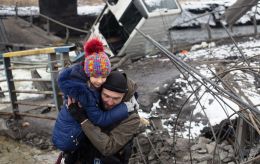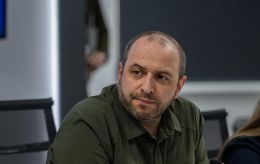Who really backed Russia in Crimea? Ukrainian MP Tasheva on FSB leaks, fake referendum, and Ukraine’s mistakes
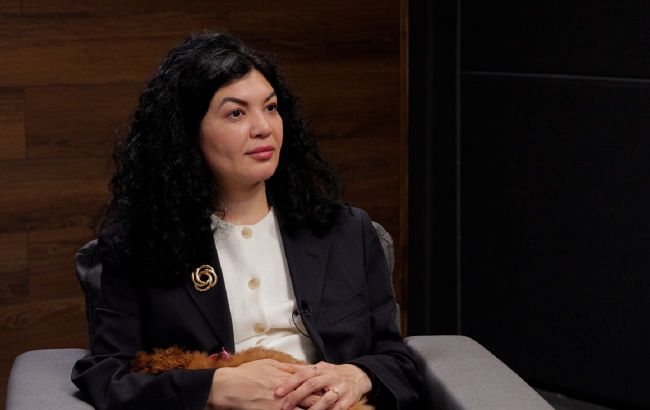 Former Permanent Representative of the President in Crimea Tamila Tasheva (photo: RBC-Ukraine)
Former Permanent Representative of the President in Crimea Tamila Tasheva (photo: RBC-Ukraine)
On the resistance of Crimeans under occupation, the place of the peninsula in peace negotiations, the creeping Russian occupation of Crimea since 1991, and the reintegration of the region – in an interview with RBC-Ukraine told Member of Parliament, former Permanent Representative of the President in Crimea Tamila Tasheva.
Key questions:
-
Crimea is part of Ukraine, not discussed separately in negotiations with the Russian Federation.
-
Liberation of Crimea is currently militarily impossible, but pressure continues, and resistance persists in Crimea.
-
Crimea has turned into a subsidized military outpost. Tourism is destroyed, business does not work, and infrastructure serves the Russian army.
-
The 2014 referendum was falsified; real support for the Russian Federation is no more than 30%.
-
Reintegration of Crimea will be difficult. New laws are needed, filtration of Russian agents and a long-term humanitarian policy.
At the end of April, US President Donald Trump stated that Crimea “will remain with Russia.” After that, Bloomberg, citing its own sources, claimed that the US might legally recognize Crimea as Russian.
Currently, during the Russian-Ukrainian negotiations in Turkey, the Russian delegation is focusing its demands on four Ukrainian regions – Donetsk, Luhansk, Zaporizhzhia, and Kherson, hardly mentioning Crimea – as if its fate has already been decided. In an interview with RBC-Ukraine, Member of Parliament and former Permanent Representative of the President of Ukraine in Crimea Tamila Tasheva explained why this is happening.
Tasheva also shared memories of life on the peninsula before the occupation, reflected on the failure of Ukrainian state policy in Crimea, and spoke about the specifics of present-day Crimea, the destruction of the tourism sector and big business in the region, as well as the new colonization and dominance of Russians on the peninsula.
Crimea's place in the peace negotiations in Istanbul
"Why, perhaps, it doesn’t sound the way we would like: Crimea, Crimea, Crimea. Because it is an inseparable part of our state. We do not bring these issues at all to negotiations or for discussion. This is a matter of our territorial integrity, the inviolability of borders. Of course, we shouldn’t deny that some of our partners do communicate with us on this matter to some extent. But this is a demand of Russia (to give up Crimea – ed.), it is not a demand of our partners," says Tasheva.
According to her, at the level of the Ukrainian negotiation group, Crimea is not discussed separately because it is the same part of the Ukrainian state as Donetsk, and Luhansk regions, just as Kherson and Zaporizhzhia regions, which after 2022 were, according to the Russian version, annexed and included in the Constitution of the Russian Federation.
Tasheva notes that immediately after the annexation of the peninsula, over 100 countries in the UN voted for a resolution on the territorial integrity of Ukraine. Foreign leaders speak of the so-called non-recognition policy, which means that Ukraine is not limited in time by which it must regain control over all its territories.
Moreover, during Donald Trump’s first term, the so-called Pompeo Declaration was adopted. This is an analog of the Welles Declaration, which was adopted during the Soviet occupation of the Baltic countries.
"It took over 50 years for the Baltic countries to gain their sovereignty and independence. But not a single country in the world at that time recognized the occupation by the Soviet Union and its sovereignty over those territories," the interlocutor adds.
Another question is how Ukraine will regain control over Crimea, says Tasheva. Since the beginning of the full-scale invasion, the Defense Forces have conducted a number of successful operations for the demilitarization of the peninsula. This includes the destruction of the Russian Black Sea Fleet in Crimea, the pushing of its remnants to Novorossiysk, the bombings of the Kerch Bridge, and regular attacks on military facilities and oil depots in Crimea. However, it is obvious that despite these successful operations, Ukraine currently does not have the military strength to liberate the peninsula.
"We have to talk about whether we currently have the further capability for the military reconquest of Crimea. If we talk not only about military operations at sea or deep strikes but about physical entry. Do we currently have such a capability? Let’s be honest, at the moment we do not. It’s clear that we never forget this component and no one will forbid us to carry out certain actions on military objects or at sea, which we are doing even now. But unfortunately, this does not mean that this (liberation of Crimea – ed.) will happen tomorrow or the day after tomorrow," she notes.

Since the beginning of the full-scale invasion, the Defense Forces have carried out a number of successful operations to demilitarize the peninsula, – Tamila Tasheva (photo: RBC-Ukraine)
Resistance on the peninsula
"If we look, for example, at the court processes taking place in Crimea, I will say just one number, which is quite telling for me as a person who constantly monitors the processes in Crimea. There are approximately 1,500 cases of administrative or criminal proceedings under the article concerning the so-called discrediting of the Armed Forces of the Russian Federation. In reality, the figure under this article on the territory of the Russian Federation is not as high as in the territory of occupied Crimea," the MP explains.
Tasheva has the impression that in Russia, everyone has come to terms with it, and there is no one there to resist the military actions of the Russian Federation against Ukraine. In contrast, in Crimea, this resistance still continues. According to her, on the peninsula, every week, new criminal or administrative cases are initiated for displaying the Ukrainian flag, for yellow-and-blue fingernails, and for posts on social networks.
"What does this indicate? It means that people have not come to terms, and 1500 may seem like a small number. But in reality, for Crimea, which is crammed with the Federal Security Service of the Russian Federation (FSB) and various supervisory bodies of the Russian law enforcement system, this is a high indicator," she is convinced.
At the same time, Tasheva says, Russian propaganda is constantly working on pro-Ukrainian Crimeans. The main narrative is: "Ukraine has forgotten about you, is not fighting for you, and does not plan to return the peninsula."
Destruction of tourism in Crimea
Since the annexation in 2014, a sanctions regime has been in effect in Crimea. Therefore, developing big business on the peninsula is impossible.
"You can get, I call it, fast money there. Buy, sell, or it's the service market. Something related to big business, investments – that is out of the question. Business does not go there, and it does not earn big money, so the region cannot develop. It is a maximally subsidized region, and it is compared, if we talk about the Russian Federation, with Chechnya, Dagestan," she notes.
There hasn't been normal tourism in Crimea since 2014, either. After the annexation, even getting to the peninsula became problematic. And since 2022, the number of tourists has decreased even more.
"Last year was the most subsidized tourist season. They filled the number of spots with budget employees. These are either Russian law enforcement officers, or workers from the public sector who work in various government bodies, or judges or FSB employees who are not allowed to leave the territory of the Russian Federation. So where else can they vacation? Either Sochi or Crimea. But there is no money there. Ordinary tourists don't go there," says Tasheva.
She says that to cover the losses of tour operators and hotels, the occupation authorities constantly pour subsidies into the tourism sector. And the locals, to somehow lure vacationers, drastically lower prices, but it's all in vain. Regular arrivals (strikes) discourage most Russians from vacationing in Crimea. All the more so because the entire infrastructure of the region is geared toward the military, not tourists.
Following the 2014 annexation of Crimea, they began building and expanding military bases very actively. Tasheva recalls that when she was still the presidential representative, she and her colleagues researched the environmental damage caused by the Russian Federation's development of nature reserves on the peninsula's territory. There, nature reserves with unique trees and unique plants were cut down to the root, and military bases were built, which are now actively used against Ukraine.
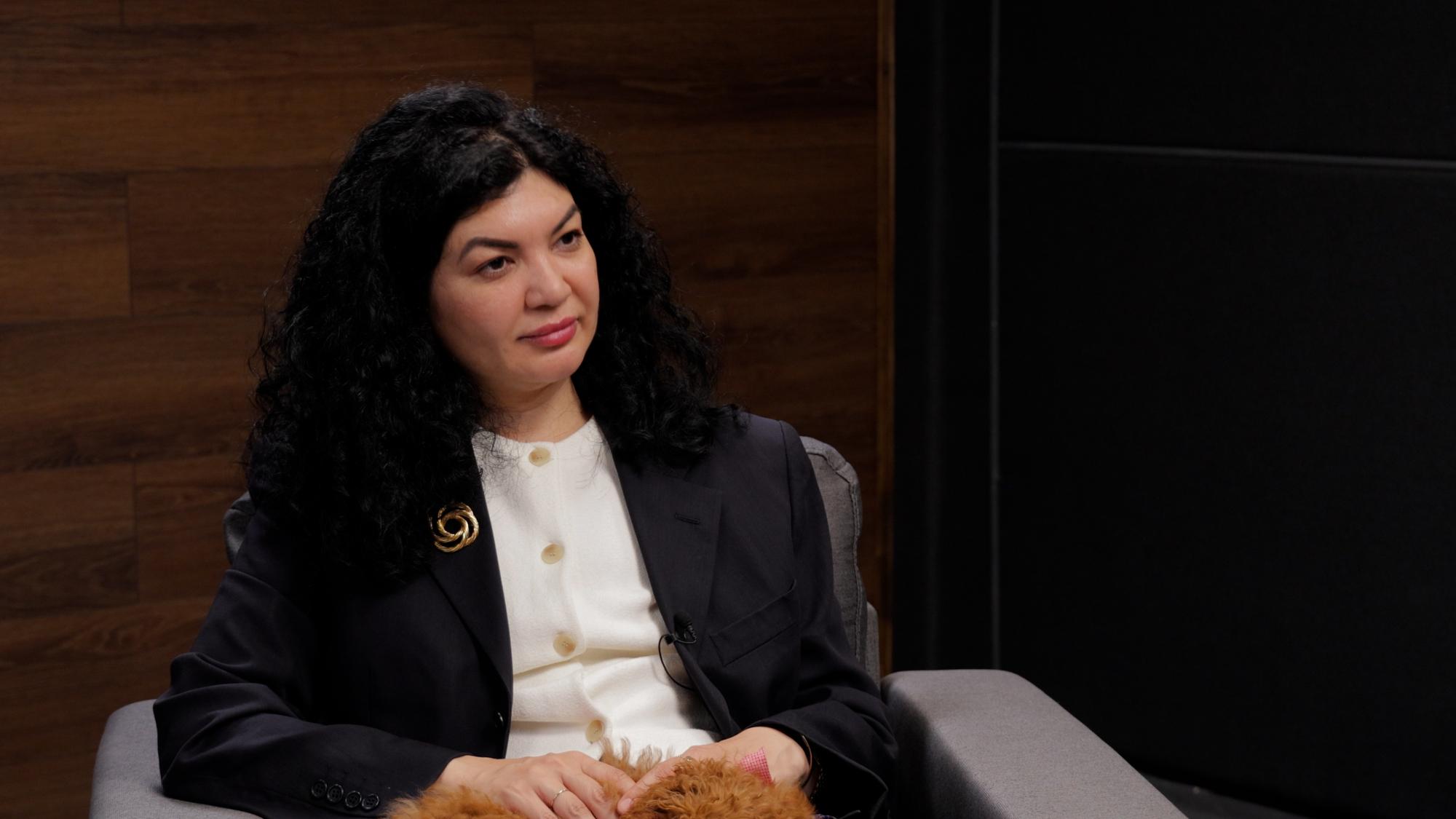
Port of Kerch and port of Sevastopol were used for military purposes to shell peaceful Ukrainian cities, reminds Tasheva (photo: RBC-Ukraine)
We more or less unblocked the sea and drove out the Russian fleet. But since the beginning of the full-scale invasion, the port of Kerch and the port of Sevastopol were used for military purposes to shell peaceful Ukrainian cities, Tasheva recalls.
"That is, the peninsula has nothing to do with a resort base for the Russian Federation. The Tavrida highway was built and positioned as a civilian object that supposedly would quickly connect Sevastopol with the other part of Crimea. Now we understand that it’s for the rapid transfer of military equipment and manpower of the Russian Federation. The Kerch bridge was undoubtedly built not to connect Russia and Crimea, but again for the transfer of troops and equipment," the interlocutor draws attention.
Russian influence in Crimea before 2014
"Crimea began to be mentally occupied before 2014. The Ukrainian authorities should have thought about what would happen in Crimea or what scenarios Russia was preparing for Crimea already after the first serious conflict in the early 2000s, when the Russians began building up a sandbar on Tuzla Island, in fact, trying to occupy our territory and annex it illegally that way. One should have thought about it after 2008, after the war that Russia started against Georgia. We did not draw those conclusions," says the Member of Parliament.
For decades, many Russian agents operated in Crimea, and the Ukrainian state and Ukrainian language were ignored at all levels.
"I am a child who studied in Crimea in the 90s, and I did not study the Ukrainian language. I learned the Ukrainian language through songs. I always tell this to my musician friends – Oleh Skrypka, Slava Vakarchuk, Sasha Polozhynskyi. But most of the population did not do so. Accordingly, in school, you wouldn’t hear the Ukrainian language. In state institutions, you wouldn’t hear the Ukrainian language," she adds.
However, the interlocutor notes that in the last years before the annexation, the situation started to change for the better. This is one of the main reasons why the Kremlin decided to act in 2014: "I think that Russia invaded in 2014 not only because it was the Revolution of Dignity, but because they understood that this was a point of no return, that Ukraine was moving in such a direction that a couple more years and they wouldn’t be able to do what they did."
Although Ukraine, Tasheva admits with sadness, did nothing to promote its interests in Crimea.
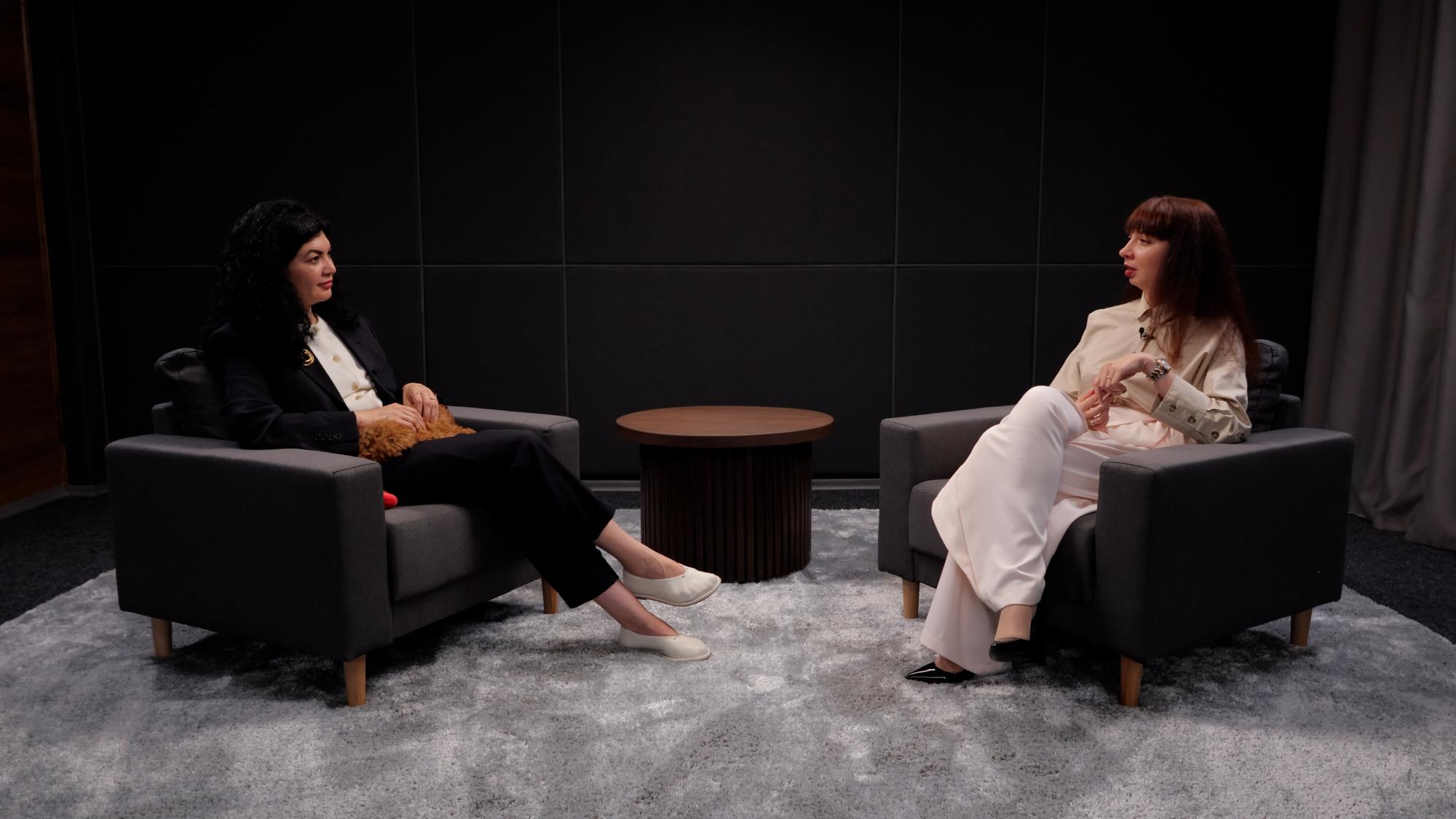
Now the peninsula has nothing to do with a resort base for the Russian Federation, reminds the Member of Parliament (photo: RBC-Ukraine)
Ukraine did not carry out a humanitarian policy for Crimea as such. There were simply hundreds of Russian organizations there, which were called "Sevastopol, Crimea, Russia", the "Russian Unity" party and so on, which operated absolutely legally on the territory of Ukraine.
"They called Ukraine a banana republic and trampled our national flag into the mud. And the Security Service of Ukraine turned a blind eye to this. And, in fact, if we look at the year 2014 and the Security Service, for the most part it remained on the territory of Crimea and almost entirely switched over to the FSB," she recalls.
According to her, the police at that time had also not been reformed and likewise remained there in full. In the MP's opinion, if Ukraine had purposefully conducted a humanitarian policy—as an element of national security—then we would not have had the situation we had in 2014.
"Yes, it was a military operation for seizure, but the fact that the population did not actively resist this seizure is also still the truth," Tasheva admits.
Referendum in Crimea
Despite the Kremlin pouring enormous amounts of money into instilling in the minds of Crimeans the idea of "primordially Russian lands", the idea of annexing the peninsula to the Russian Federation was not seriously considered.
"The idea of joining Russia, in principle, as such, was not strongly present in the public space in Crimea. These were such separate marginal groups that voiced it publicly. The largest pro-Russian force in Crimea was the 'Russian Unity' party, actually the party of Serhiy Aksyonov, the current head of the occupation administration. They gained 3–4% of the vote in the last local elections. Do you understand? And they had, I believe, 3 seats out of 100 in parliament," says the Member of Parliament.
Tasheva emphasizes that in Crimea, many people really were nostalgic, but not for Russia—for the USSR. After all, even during Soviet times, many military pensioners moved to the peninsula and remembered Soviet times with nostalgia. But there was no longing specifically for Russia in Crimea, because no one knew what it was like to live in Russia.
"If we talk about the political component, people there voted for the Party of Regions, but at the same time, for example, 'Batkivshchyna' also received a fairly high percentage. 'Our Ukraine' at that time received 10%." In other words, three times more Crimeans voted for Yushchenko’s "nationalist" 'Our Ukraine' than for the pro-Russian 'Russian Unity' of Aksyonov.
Tamila Tasheva reports that, according to their data, no more than 30% of residents voted in the so-called referendum in Crimea for joining Russia.
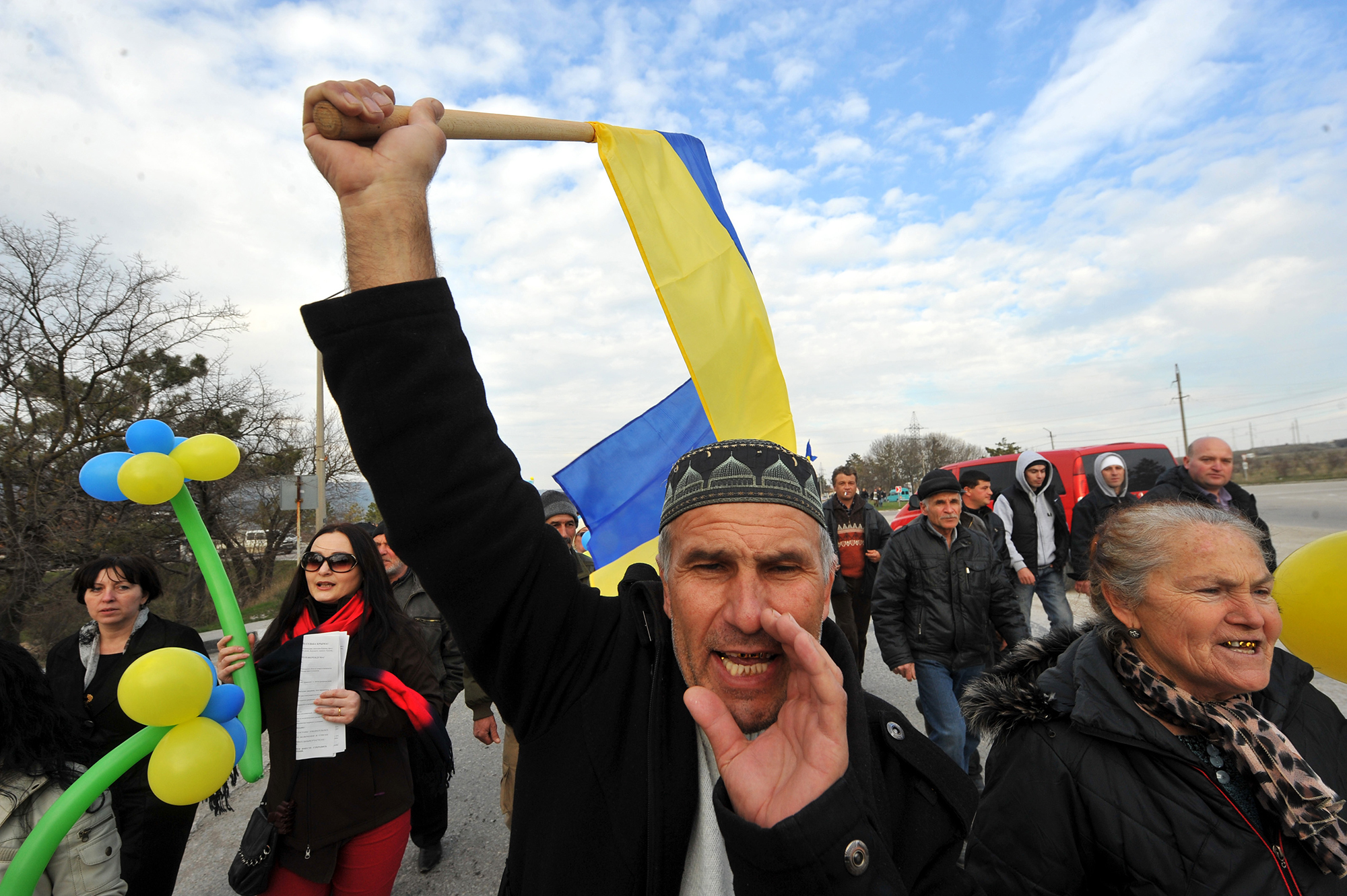
Crimean Tatars mounted strong resistance to the occupation of Crimea in 2014 (photo: Getty Images)
"Back in 2014, Mustafa Dzhemilev said that they had information from the FSB. You know, corruption in Russia is quite high. And at that time, Mustafa Aga said that someone from the FSB had been bribed and pulled out the real data regarding the referendum on the territory of the peninsula. Turnout did not exceed 45%, it was below 50%. And the number of people who voted for the Russian Federation, for annexation, was no more than 30%," she says.
However, despite the colossal falsification of the results, people accepted it. Largely because they didn’t understand what would happen with Ukraine next.
"If we look at the resistance that took place in Kherson (in 2022 – ed.) – people were going up to tanks practically with bare hands, jumping on them with flags. And I’m often asked why that didn’t happen in Crimea. The year 2014 was a period of turbulence and uncertainty about what was happening at all. The Revolution of Dignity had just ended. There was no coherence in the Verkhovna Rada, portfolios were being divided—who would be which minister. We had no president, only an acting one. Our Ukrainian army was completely broken. And so in 2014, Crimeans didn’t understand whether someone stood behind them, you know? Was there a government? Was there an army that could protect them? And it turned out—there wasn’t," the interlocutor believes.
Reintegration of the peninsula
Tamila Tasheva is convinced that sooner or later Ukraine will return to Crimea. How will the local population react to this? Differently. And this must be anticipated.
"Now both government officials, the presidential vertical, and the legislative branch are working on various laws, various policies regarding the occupied territories. This needs to be done already now. It doesn't matter whether it will be in three years, or in five, or in ten—the territory of Crimea or other occupied territories will return under our control. By that moment, we must be ready," Tasheva believes.
First of all, she considers it important not to miss the humanitarian policy, as had already happened in past years. Secondly, it is necessary to understand how government institutions will function in de-occupied territories and how and when elections can be held there.
Post-war elections in occupied territory are completely different from post-war elections in territory that was not under occupation.
"That’s precisely why the Ukrainian government, legislators, we are actively working with our foreign partners, explaining to them that it is absurd—you cannot hold elections in de-occupied territories immediately after de-occupation. It’s nonsense because the population there is brainwashed by propaganda. There is no census—what population lives there, with what documents? We need to understand that there will be many agents there," says Tasheva.
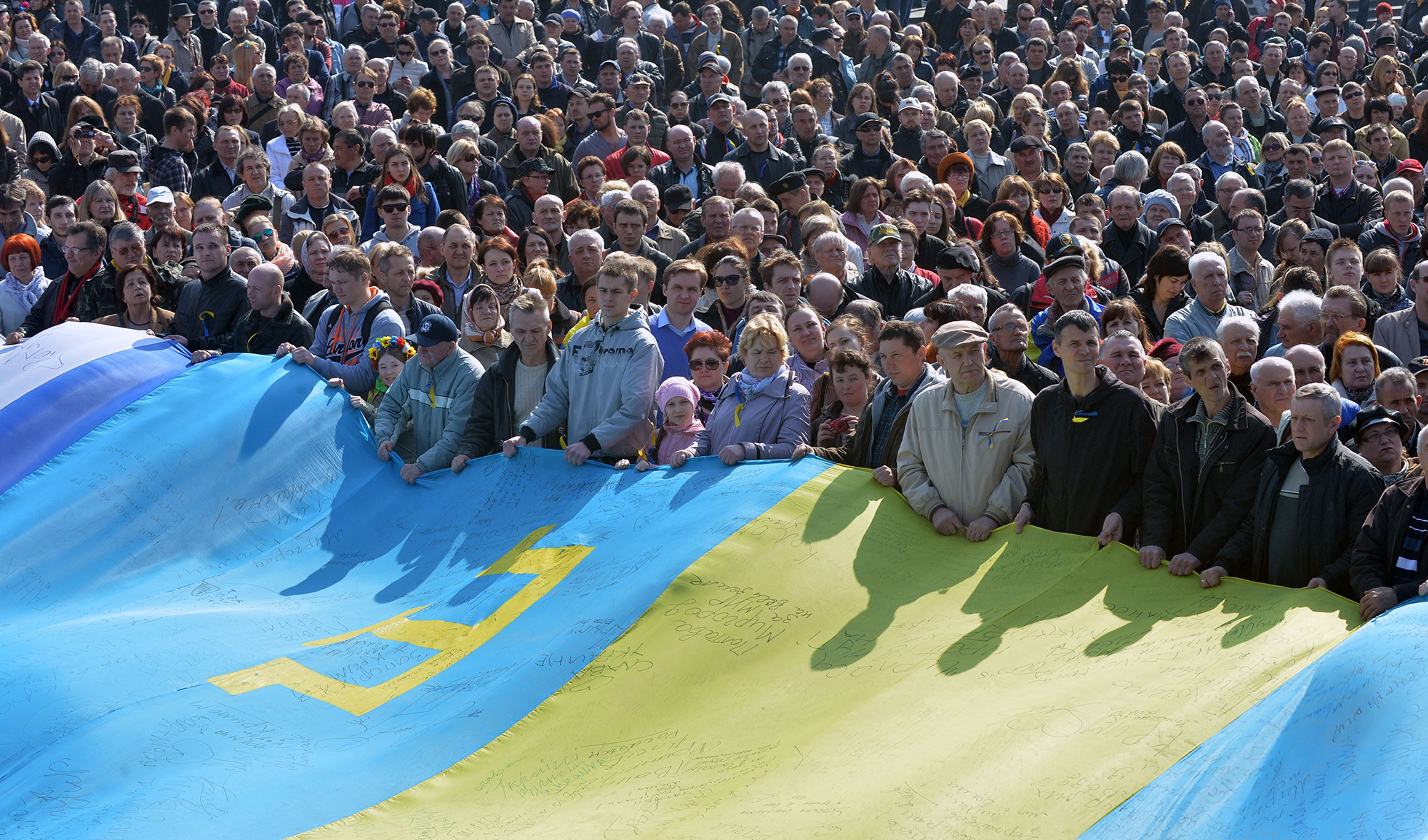
Sooner or later, Ukraine will return to Crimea, Tamila Tasheva is confident (photo: Getty Images)
Since 2014, the Kremlin has been actively engaged in resettling Russians in Crimea – this is a sort of "Colonization 2.0". At the time of the occupation of the peninsula, about 2.5 million people lived there. Over the past 11 years, the occupiers have resettled, according to various estimates, from 0.5 to 1 million Russians to the peninsula.
"Russians must leave the territory of Ukraine. This is a matter of our national security. Then, after they leave, they can apply to our migration authorities, stating that they have lived in Ukraine for some time, have children, and, conditionally speaking, own some property. We will consider whether to grant them the opportunity to reside temporarily on the territory of Ukraine or not," – emphasizes Tasheva.
Life during the occupation did not stop, she noted. It is clear that people came from the Russian Federation to live in Crimea, they married Ukrainian women or men, had children, acquired property and bought property, even though it is not registered according to Ukrainian citizenship. According to Tasheva, there are many nuances that, in any case, need to be sorted out. But the first step, in her opinion – they must leave the territory of Ukraine.
"And then they can make requests to the Ukrainian state about the possibility of residing. And we will consider whether this person violated human rights, for example, or maybe, on the contrary, helped. I know some lawyers who came to Crimea and seem to live illegally, but they helped political prisoners and defended them in court. Will this be a positive factor for such a person? It is quite possible that it will, and maybe it won’t," – she reflects.
In Tasheva’s opinion, it is necessary to look at whether the person received property illegally from the occupation authorities or bought property voluntarily from a Ukrainian citizen who, for example, left the territory of the peninsula.
"There are many complex nuances, very complex. This process will not be easy, but the key thing is – we need to liberate this territory,"–Tamila Tasheva is confident.
